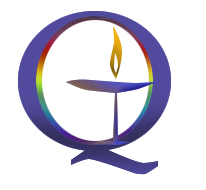How Do I Handle This Conflict?
Conflict is an opportunity: to grow, to learn, to re-connect.
Yet conflicts can be unsettling. When you find yourself at odds with someone, the best way to move towards a positive outcome, can be obscure. Below are some suggestions for moving forward.
Questions for Self-Reflection
What are my feelings and needs?
What is the key issue or problem in this conflict?
What do I want to convey to the other person?
How can I apply these principles from our Right Relations Covenant?
- Be curious about the other person’s point of view.
- Assume that others have good intentions.
- Be willing to admit that I am not always right.
- Be willing to let go of being in control of the situation.
- Reflect upon how my own projections, past issues, wounds and tendencies color my stance.
- Avoid judging, blaming, shaming or trying to fix others.
- Trust that conflicts can be worked through rather than avoided.
- Respect each individual’s unique learning style, social ability, life experience, gender identity, socio-economic status, mental condition, race, age, personality, sexual orientation, theology, and politics.
Steps toward Resolution
Decide when to address the issue (the sooner the better, once emotions have cooled), and decide whether you feel you can do it on your own or whether you want to consult with the Healthy Community Team.
If you decide to approach the other person, these sentence starters may be useful when inviting the other person into dialogue:
- I feel confused/upset/curious/bothered by our interaction. I’d like it if we could talk about it.
- Do you have some time to talk?
- Could we talk over what happened?
- Would you be willing to sit down with me to work this out?
- I‘d like to better understand your perspective on what happened.
- I’d like to apologize for my part of our last interaction.
- I feel out of Right Relations with you. Can we talk?
The full QUUF Right Relations Covenant can be found on our website under About QUUF > Governance
This page last updated December 18, 2022
